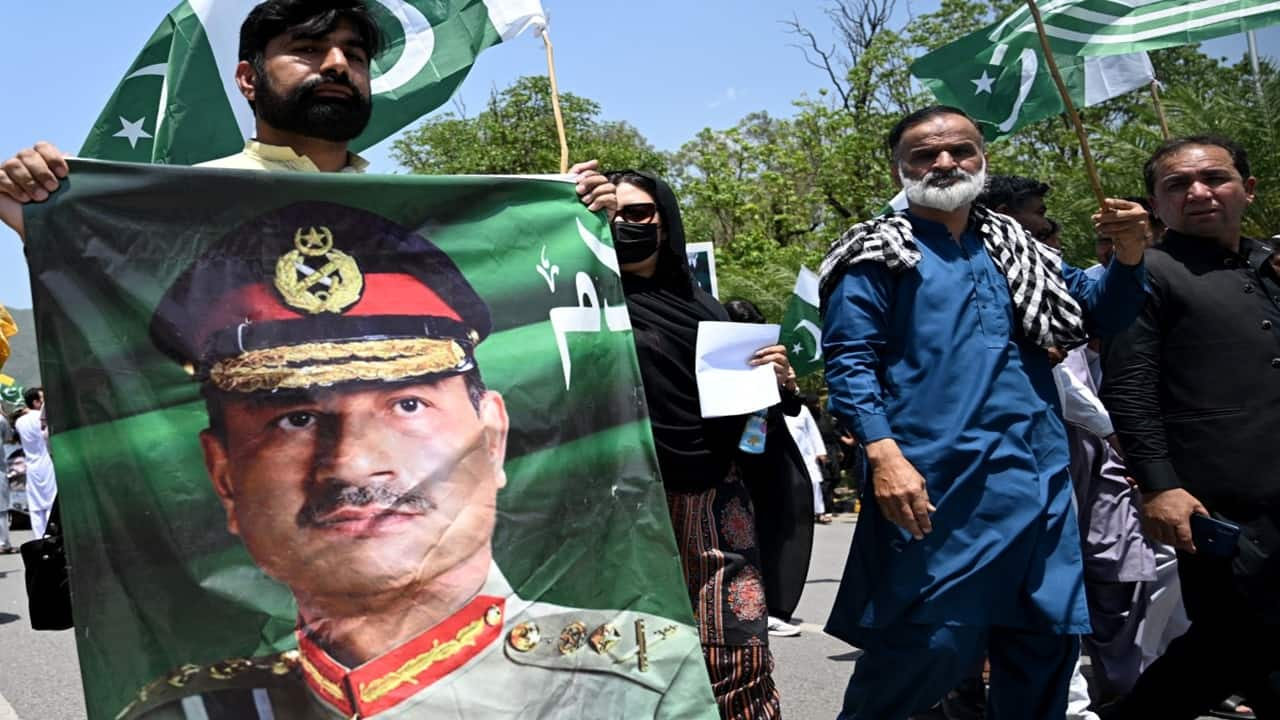



Fresh speculation of a political shake-up in Pakistan has resurfaced following a high-level meeting between Prime Minister Shehbaz Sharif and Army Chief Field Marshal Asim Munir last week.
To be noted, this was their second such interaction this month.
The buzz has reignited rumours that Munir is eyeing the presidency, likely with the intent to replace Asif Ali Zardari.
Despite PM Sharif’s dismissal of these claims, the rising frequency of such meetings, coupled with Munir’s magnifying diplomatic visibility, is fuelling chatter about a likely soft coup or at least a more dominant military grip on Islamabad.
The latest speculation comes after Munir met PM Sharif at the Prime Minister’s House, shortly before Sharif met with President Zardari last week.
This marks the third time in recent weeks that such coordination has stirred the rumour mill.
Not just this.
Adding fuel to the fire is Munir’s dramatic solo diplomacy spree.
After accompanying the Pakistani PM on trips to the Gulf and Central Asian countries earlier this year, Munir has now embarked on his solo visits to Sri Lanka and Indonesia -- this time without Sharif.
Also, to be mentioned here is his earlier, headline-making lunch meeting with US President Donald Trump in the White House last month. This further puts the spotlight on his growing stature, especially considering that Sharif is yet to receive a similar invite.
 A man carries a portrait of Munir during a rally to express solidarity with Pakistan's armed forces in Islamabad early this May.
A man carries a portrait of Munir during a rally to express solidarity with Pakistan's armed forces in Islamabad early this May.
In addition, Munir’s recent elevation to Field Marshal, only the second time in Pakistan’s history after Ayub Khan, is viewed as more than symbolic.
Ayub Khan, after all, went on to become the country's first military ruler-turned-president in the October of 1958, following a military coup, overthrewing the then President Iskander Mirza.
Observers are now drawing parallels, questioning whether Munir, too, is following in his footsteps?
Meanwhile, though Sharif insists Munir has “no plans” to become President; such denials have historically preceded major power transitions in Pakistan.
Furthermore, former Prime Minister Imran Khan, now imprisoned in Adiala Jail, has also publicly blamed Munir for targeting him and even alleged that the Army Chief is responsible if anything happens to him in custody.
This allegation, coupled with Munir’s sweeping control over key military and intelligence positions in the past, from heading Military Intelligence and the ISI to commanding corps, outlines him as one of the most strategically placed army chiefs in Pakistan’s recent history.
That said, for New Delhi, Munir is not just another Pakistani military leader.
He is viewed as a hardliner, the architect behind the April 22 Pahalgam terror attack and a staunch proponent of the two-nation theory. His repeated emphasis on Kashmir as Pakistan’s “jugular vein” and perceived role in promoting state-sponsored militancy have only heightened concerns for Indian security.
Moreover, the fact that during the Operation Sindoor standoff, the US Secretary of State called Munir, and not PM Sharif, clearly shows who Washington sees as the real power in Islamabad.
While a formal coup appears unlikely at this point, there is little room for doubt that Pakistan’s political centre of gravity is shifting back to Rawalpindi.
Elections might very well go ahead, and the civilian façade may remain; however, behind closed doors, it’s Munir who seems to be calling the shots.
In a country where the military has directly ruled for nearly half its existence, rumours of army-led political transitions are never too far from reality. Whether Munir formally becomes President or remains the power behind the throne, Pakistan’s political future appears once again to be wearing military fatigues.
Discover the latest Business News, Sensex, and Nifty updates. Obtain Personal Finance insights, tax queries, and expert opinions on Moneycontrol or download the Moneycontrol App to stay updated!
Find the best of Al News in one place, specially curated for you every weekend.
Stay on top of the latest tech trends and biggest startup news.